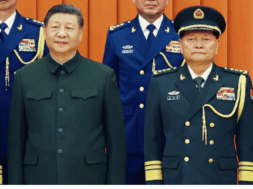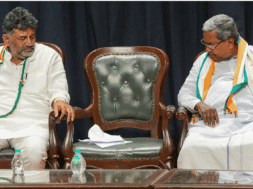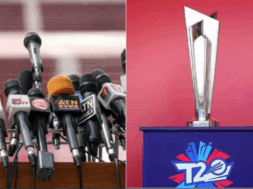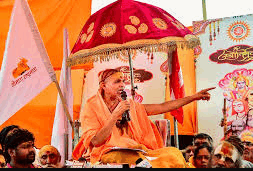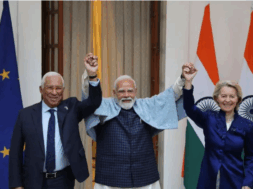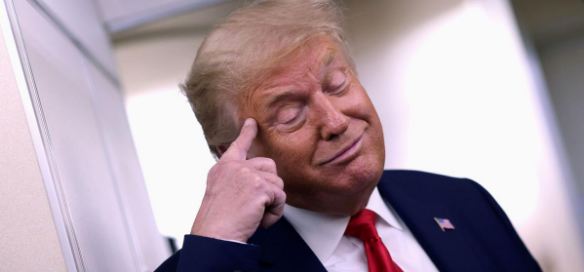
Virendra Pandit
Many Indians, including the three million Indian-Americans, find it rather difficult to understand the nitty-gritty of the US Presidential election, which is very different from the General Elections in India.
Being generally highly-educated, prosperous, and professionally successful, the Indian-Americans have emerged as one of the most influential people in the USA. Some even call them ‘neo-Jews’ due to the tremendous influence they now wield in the USA. Despite an Indian-American, Kamala Harris, being made the Vice Presidential hopeful, they are unlikely to support the Democrats in large numbers.
That is because of two reasons: America and India have never been closer than they are now. Secondly, both Trump and Prime Minister Narendra Modi, who share excellent rapport, are ‘unconventional’ leaders who do not carry any baggage from the past.
The incumbent, Donald Trump, is seeking a second term as the President of the United States when the nation goes to polls on November 3, 2020. As the 45th President, he has, perhaps, been the most controversial person to occupy the White House. And, despite dire predictions, he is confident to win a second term.
Why?
There have been many lapses across his first term (2017-2020). Even now, Trump, himself infected, is fighting the Covid-19 pandemic and its aftermath. China has seen in him a man vulnerable enough to expand Beijing’s colonial footprint globally, the way the Americans had, three decades ago, discovered in Mikhail Gorbachev the Russians’ soft underbelly to make the US-led unipolar world.
But Trump is an unconventional leader. In fact, he broke several ‘conventions’ when he became the US President. He was neither a lawyer nor a dynastic or professional politician, nor an ‘intellectual’. He has always been a businessman who emerged from the ecosystem that ‘the business of America is business’. Clearly, he has been the ‘true representative’ of a nation of businessmen.
Businessmen do not live in academically woolly or ideological worlds. They do not theorize nor go into unnecessary details while taking a decision. All they want to know and do is how to maximize business opportunities and profits. They speak a plain, comprehensible language and do not camouflage their aims.
Therefore, despite the ‘self-influential’ Left-Liberal media’s ‘predictions’, and support to the Democrats, Trump, 74, still remains popular across America, particularly among the Republicans, Protestants, businessmen, professionals, job-seekers, and China-bashers. His recent “Abraham Accords” are being viewed as his defining moment to bring the Israelis and Arabs closer to each other and to the West after 14 centuries.
His confidence in a second term also emerges from the uniqueness of the US Presidential election. His Democrat rival Joe Biden, a former Vice President, is 77-years-old and mired in the controversies of his own.
Unlike India, the US has no ‘national election commission’ as the apex poll body responsible for overseeing elections at the national level in the world’s oldest democracy. Secondly, unlike India and some other democracies, the US voters are openly registered by the political parties and are part of the electoral college. In other words, the US election is not decided by popular and confidential vote but by the electoral college.
It is here that the election’s outcome becomes rather interesting: whether a winner could actually be a loser and vice-versa?
For, most Democrats, afraid of the pandemic, have decided to vote by mail while the Republicans will throng the voting booths, in person. The US officials will take time to officially verify and count millions of mailed-in votes. Final results, therefore, could swing even after provisional ones.
State-level officials in the USA certify elections in their respective states. Being part of the state governments, they are partisan. Different American states have their own rules for voting and counting. Some of them allow mail-in voting; this time, they would allow mass voting by mail due to the pandemic.
Some other states follow the tradition of ‘advance’ voting: hundreds of thousands have already voted for the November 3 election!
Rules for counting of votes polled also differ from state to state. In Michigan, where most chose to vote by mail, counting will be held only on November 3, while some other states will count such votes first; some states also allow mailed votes to arrive even after the election day.
The Trump-led Republicans have argued that the Democrats’ mailed-in votes could lead to fraud. In case these votes are ‘declared’ invalid, Trump-supporters believes he can easily return to the White House.
Now, since the outcome of these elections depends on the electoral college, the role of the swing states comes into play. This time, the number of such ‘unreliable’ states, the so-called “battleground”, is seen anywhere between nine and 13. That is, these states could swing the outcome either way.
Whatever the final result, the loser is likely to challenge it in the Supreme Court which will have to shoulder the onerous task of declaring the winner. Many of the judges there have been appointed by the Trump Administration and they are unlikely to declare a Democrat winner.
So, in all likelihood, Trump may remain in the White House until 2024, almost until Modi occupies 7, Lok Kalyan Marg, New Delhi!
